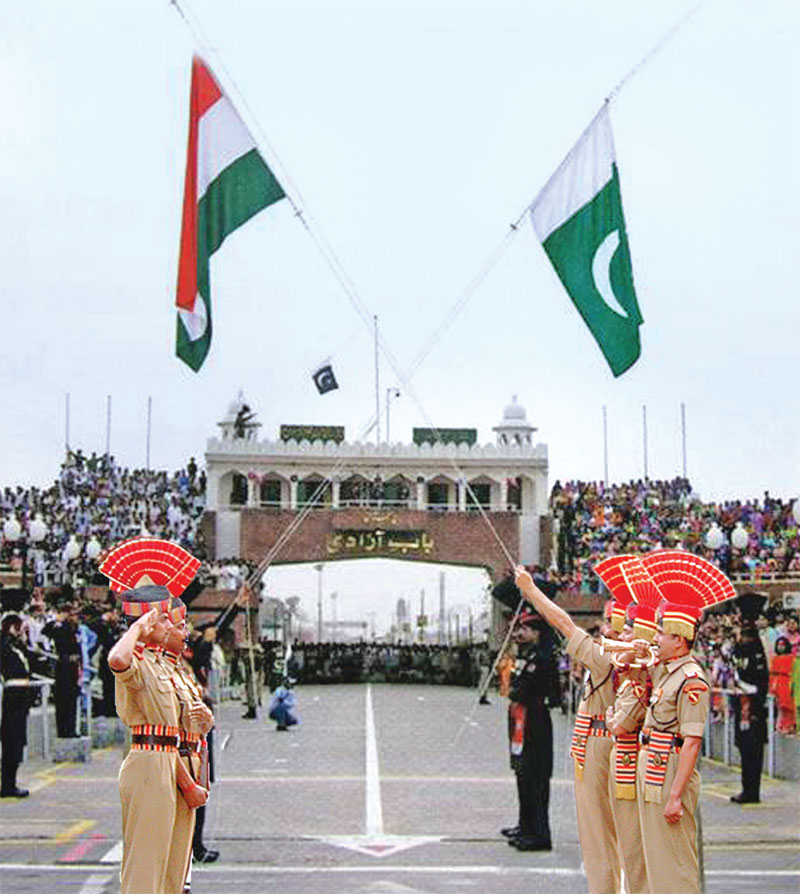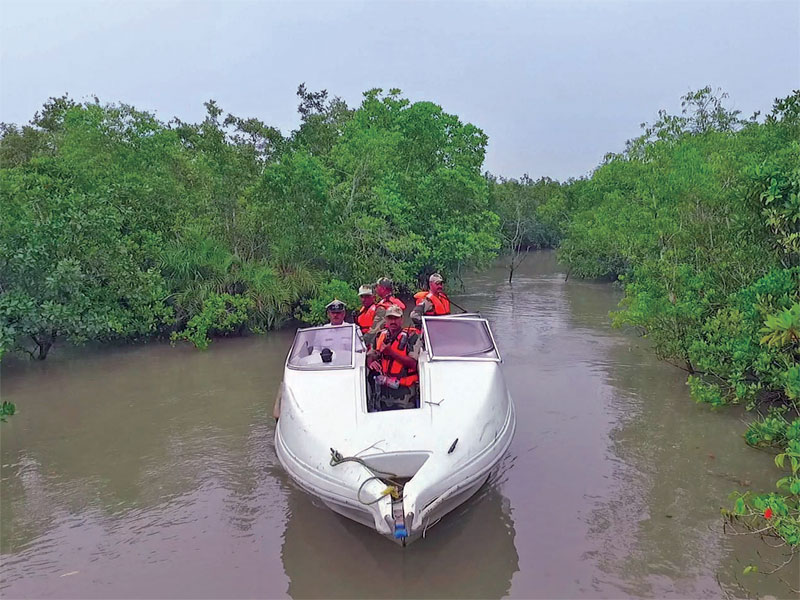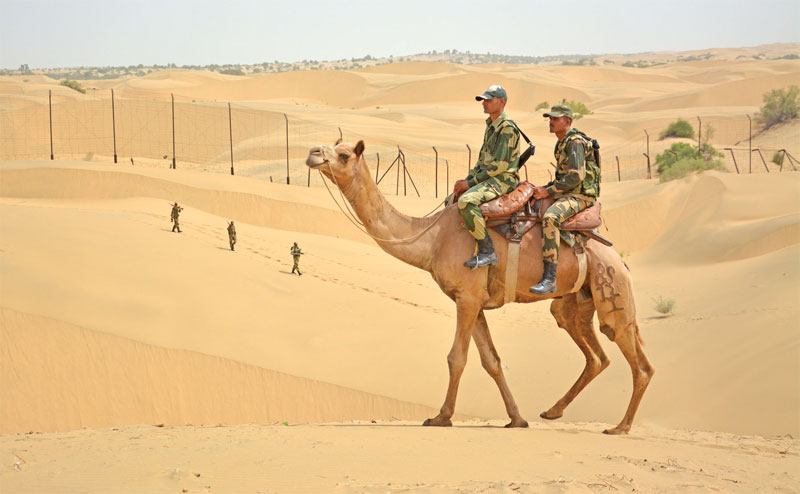Regimentation and professionalism in border-guarding forces and need for synergy with the army
 R.C. Sharma
R.C. Sharma
‘Professional knowledge and professional competence are the main attributes of leadership. Unless you know, and the men you command know that you know your job, you will never be a leader’ — Field Marshal Sam Manekshaw
The mandated role of border guarding forces is to ensure the security and integrity of India’s borders during peacetime and integrate with defence forces during war. Border Guarding forces (BGFs) fall under the category of ‘any other armed force of the union’. They require strong regimentation and professionalism to fulfil their mandated role and task.
Regimentation enjoins upon commanders and their men to know and understand each other, like a close family unit. Such associations survive throughout service and even after retirement. Regimentation instils a sense of belonging among troops, nurtures an esprit de corps. A shared sense of pride is groomed—in force ethos, customs, traditions and regimental achievements. It is amorphous things like these, that make a battalion or a regiment, a fighting machine.
Lack of regimentation is one of the major causes of professional degradation in most BGFs in India. Attempts were made to dismantle regimentation in the Border Security Force (BSF). Thankfully, the ministry of home affairs did not allow it.
BGFs need a very high degree of professionalism. The sort that is engendered only when men and officers live and train together, understand each other’s strengths and weaknesses and constantly strive to bring glory to the regiment’s flag. This is a culture that turns the meekest of men into warriors—ever willing to embrace death for regimental honour.
If it is indeed such a valuable tool, why is regimentation missing or heavily diluted among the BGFs? Have their role and task been deliberately disregarded, without analysing the ramifications for national security? This is a question that needs to be carefully considered.
As per the ministry of home affairs’ annual report for 2019-20, border management means ‘Securing the country’s borders against interests hostile to the country and putting in place systems that are able to interdict such elements’. ‘Accordingly, borders with Bangladesh and Pakistan have been entrusted to the Border Security Force (BSF), China border to Indo-Tibetan Border Police (ITBP), Nepal and Bhutan borders to Sashastra Seema Bal (SSB), and Myanmar border to Assam Rifles’. The Indian Army works with the BSF on the Line of Control (LC) with Pakistan and with the ITBP on the Line of Actual Control (LAC) with China. The primary task of the BSF, ITBP and SSB is border guarding. In addition, border-guarding forces also have a role in war.
The Kargil Review Committee asserted that the ‘repeated withdrawal, in large numbers, of para-military forces from border guarding duties towards internal security and counter insurgency duties led to neglect of the borders. These forces have also been unable to perform optimally due to cannibalisation of battalions and even companies’.

Therefore, it is imperative that border guards must be detached from internal security. They must be brought under one umbrella and designated as the Indian Border Guards (IBG) or Border Guarding forces of India (BGFI), while retaining their individual identity. This is because their role requires them to function in close-knit groups for effective border security, both in peace and in war.
Regimentation shapes the relationship between leadership and men, and how seamlessly they sync during operational situations. Non-regimentation dilutes professionalism and operational effectiveness. There is no loyalty towards the battalion since after their tenure, men move to other battalions on individual posting. Loyalty to leadership then, is nurtured not for professional improvement but for better, more comfortable postings. Commanders do not know their men and the men care not for their commanders. Trust and camaraderie wither. Talent search for field leadership becomes next to impossible.
Factors Affecting Regimentation
- Absence of parent battalion concept for officers and men: Officers and men must be attached to a parent battalion. They must remain in it throughout their service and must come back after instructional/ deputation tenure. This is a basic requisite for regimentation. As officers and men do not owe identity to any particular battalion, they have no emotional connect. No feeling of ‘My men, my battalion and my leader’.
- Operational Cannibalisation: In border guarding forces companies and battalion are cannibalised for internal security, including election This defeats and dilutes regimentation and adversely affects professional functioning and efficiency. Cannibalisation is the worst operational ad-hocism. It leads to a breakdown of effective command mechanism and impacts discipline. Cannibalisation thus ruptures and dilutes regimentation, affecting professionalism.
- Absence of Regimentation Increases Stress: In border guarding forces men work in a difficult and hostile operational environment. Extreme heat, humidity, cold, even oxygen deprivation at high-altitudes—is all par for the course. Field commanders and troops work 24×7 all year round, without rest and relief.
But the leadership is often unable to adequately address basic human resource issues. The isolation, physical and mental fatigue, lack of rest, inability to meet social obligations—all lead to domestic strife. Poor financial incentives and promotional avenues cause mental agony. All this culminates in indiscipline or incidents of suicide and fratricide.
Regimentation entails togetherness. It acts as a big stress buster since it builds a team structure where the men and their officers learn to live and die together, caring for each other. A strong regimental system enhances professionalism, ensures effective grievance redressal and improves discipline.
- Training Dilution: Field Marshal Erwin Rommel says, “War makes extremely heavy demands on soldier’s strength and nerves. For this reason, make heavy demands on your men in peacetime exercises”. Training develops soldierly qualities, soldierly skills, leadership and development of company and battalion as cohesive fighting units. Regimentation is a morale and motivation booster. It inspires men to train effectively despite difficulties for the sake of battalion and regimental honour. A culture of rigorous individual and collective training boosts the capacity to work well in extremely hostile environment
- Absence of Cohesiveness: Professional development means cohesiveness from top to bottom within the An absence of regimentation leads to a fragmented functional ethos—since the ultimate aim becomes mere tenure completion in the battalion and subsequently, a hunt for plum postings.
Regimentation on the other hand, encourages men and commanders to know each other as a family. Cohesiveness becomes a professional imperative—key to surviving adversities and extremely hostile operational situations. This enhances troop confidence in field commanders, turning sections, platoons and companies into fighting fit machines.
- Adhocism: Recommendatory postings, VIP references, frequent shuffling of officers and men citing administrative reasons and largescale shuffling during move of battalions further erode regimentation and cohesiveness.
The responsibility for regimentation lies upon the senior leadership of border guarding forces. They need to understand the pre-requisites of regimentation and its professional benefits. Prerequisites for regimentation are:
- Know your men
- Know your job
- Develop professional capability to accomplish the job

Wartime Synergy with the Army
Military veterans continuously clamour for placing border-guarding forces permanently under army operational control. During the Ladakh crisis, media reported about a proposal to permanently place ITBP under army operational control. Similarly, infiltration attempts along international border, as also the Nagrota encounter prompted army veterans to call for placement of BSF under army operational control. Such demands are neither prudent or professional, as they affect the morale and motivation of these forces who are at the receiving end despite giving their best for national security. It must be realised that these forces fall under the ministry of home affairs and cannot be placed under army operational control only during war time.
Former Northern Army Commander, Lt Gen. D.S. Hooda at a webinar by the Institute of Chinese Studies observed, “There are limitations in the way ITBP can respond, not because soldiers or officers are lacking, but because they do not have the organisational structure and capability to react to it.” However, the solution does not lie in placing BSF, ITBP and SSB under army operational control even during peacetime. What is required is a mechanism for peacetime coordination to bridge infrastructural and training gaps to enable border-guarding forces to fight shoulder to shoulder with the Army during war. Border guarding forces automatically come under army operational control as and when hostilities are declared. Better synergy and trust between border guarding forces and the army can be generated through joint training and exercise for wartime effectiveness. Effective border management can happen only if the BGF and the Army follow a unified professional culture.
For Better Synergy with the Army
(a) Prepare SOP for regular joint audit with army of equipment inventory of border guarding forces and compatibility with army inventory. Lay down periodicity of audit and follow it up meticulously.
(b) Undertake task-based analysis of training capabilities by holding physical exercises on ground at regular intervals to polish administrative SOPs, inventory efficacy, battle drills and procedures.
(c) Quarterly interaction between additional director generals of border guarding forces and director general, military operations, must be made mandatory to identify infrastructural and organisational needs. Training command and training directorate representatives should be part of such interactions.
(c) Hold regular brain-storming sessions with army authorities at frontier and force head quarter level to build trust and synergy.
(d) Identify shortcomings like higher age profile of troops, role of women in combat, mine laying capabilities, inadequacy of anti-tank weapons and lack of defensive wartime training and take measures to remove shortcomings.
(e) Carry out peacetime testing of battalions, sectors and frontiers for role fitness.
(f) Make operations directorate and frontier heads responsible and accountable for effective training.
(g) Make collective training of at least three companies with army mandatory during training year.
(h) Remove border guarding forces from ‘CAPF’ umbrella and bring them under a new umbrella of ‘Border Guarding forces of India or Indian border guards’, at the same time maintaining their individual identity.

Steps to Strengthen Regimentation
To strengthen regimentation in border guarding forces, the following steps are recommended.
- Introduce parent battalion concept for officers and men and ensure strict implementation.
- Follow system of battalion movement as a whole after stipulated
- Do not resort to large-scale postings of personnel during annual changeover of units in the guise of administrative requirements as it dilutes regimentation and cohesiveness.
- Follow professional profile-based system for postings strictly in the interest of fairness and transparency. Avoid reference system for postings, as it leads to heartburn, jealousy, disharmony and lack of cohesiveness.
- Strengthen training parameters and ensure holistic ground training.
- Make organisational history, war and peacetime achievement part of course curriculum for basic and in-service courses.
- Ensure time bound promotions.
- Inculcate respect for chain of command.
- Avoid cannibalisation of companies and battalions in the interest of discipline and professionalism.
- Zero tolerance against indiscipline and corruption.
- Restore Naik and Head constable in rank hierarchy. Abolish ASI (GD) rank and introduce rank of HC (LDCE) from constable to head constable for young age profile of section commanders.
Conclusion
There is urgent need for regimentation in border guarding forces as it fosters and builds professionalism. It builds companies and battalions into close-knit cohesive subunits and units. It improves discipline, enhances morale, motivation and trust in command and makes the unit a well-oiled fighting machine.
Field Marshall Erwin Rommel’s quote aptly summarises regimentation: ‘Winning of men’s confidence requires much of commander. He must exercise care and caution, look after his men, live under the same hardship and above all apply self-discipline. But once he has their confidence, his men will follow him through hell and high water.’
To have confidence both have to live and train in a regimented environment to develop trust upon each other. The government must restore regimentation for effective management of border security challenges both during peace and war.

